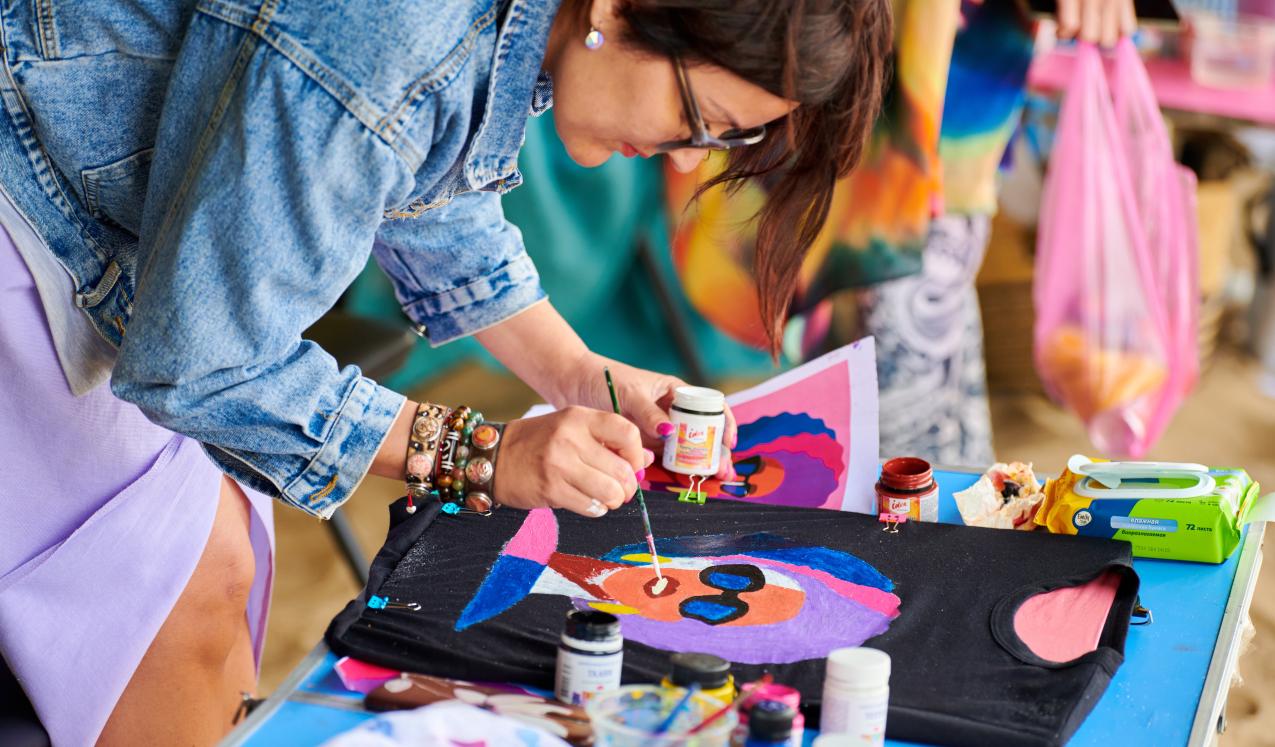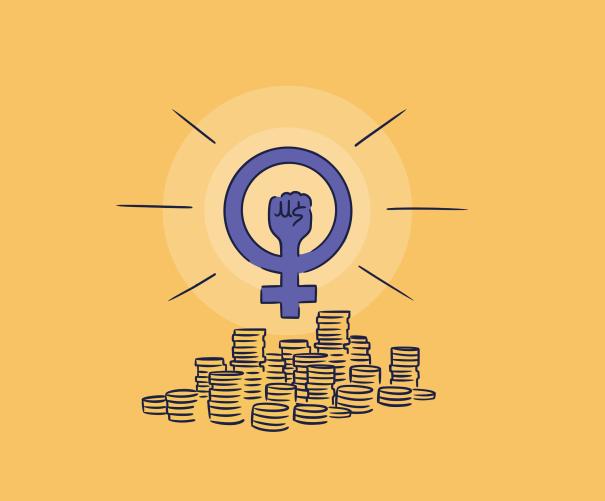
Call for proposals: primary research partners
This call is now closed. Thank you to everyone who sent expressions of interests, we received a very large number of applications. If you have not heard from us by 6 January, your application has not been successful on this occasion.
Art is a tool for feminist activists and organisations to promote their vision of progressive gender norm change. Arts-based approaches can be used to highlight biases in one's gender-related beliefs and attitudes and to articulate alternatives. The potential of using arts-based approaches to address gender-based violence (GBV) is particularly promising since it can help approach sensitive topics, work with boys and men, and support the well-being of victim-survivors, among other advantages. The impact and effectiveness of arts-based approaches to achieve norm change related to GBV, however, is less clear.
In response to this empirical gap, ALIGN is launching a new research project: How effectively can art promote GBV-related gender norm change? We are looking for partners in the ‘Global South’ to conduct this project with and contribute to the available body of evidence on the impact of using art-based approaches to prevent and respond to GBV by promoting gender norm change.
Background
Feminist artists, movements and organisations have used art as one of their tools to advance gender equality, as recent research by ALIGN has shown. Activist artists, such as Elina Chauvet, Suzanne Lacy and Rebecca Lane are using their work to denounce gender inequality and inspire critical reflection. Feminist movements in Chile, Turkey, Italy and Pakistan, among those in many other countries, have incorporated art into their activism to denounce GBV and demand changes. Moreover, feminist, pro-feminist and development organisations, like A Long Walk Home and Oxfam, have incorporated art into their programming to raise awareness about GBV and promote social transformation.
ALIGN’s research indicates art can be particularly well-suited to promote gender norm change. Gender norm change refers to the process of prompting changes in the implicit and informal rules that influence gender-related attitudes and behaviours to challenge those that are harmful and reinforce patriarchal relations. Using art can contribute to this process by highlighting biases in beliefs and attitudes, call attention to neglected issues, stimulate critical thinking, foster dialogue and reflection, engage people emotionally, and create the space to explore and test alternatives.
GBV remains a core concern of feminist movements and organisations worldwide and has become a central focus of arts-based feminist activism. Art-based approaches are particularly well suited to addressing this issue as they provide a sensitive platform for discussing complex and often painful topics. These methods foster engagement with vulnerable populations in a caring and respectful manner, promote the well-being of GBV victims-survivors, and reduce resistance to reflection and dialogue. Moreover, arts-based initiatives effectively connect with diverse audiences, including both young people and adults, making them a powerful tool for advocacy and social change.
However, while there is some evidence supporting the impact of arts-based approaches in promoting gender equality, further research is needed to solidify this body of knowledge, especially in an impact-driven funding context. A critical area for investigation is the long-term impact of these approaches. This is particularly important given the long-term nature of norm change as it involves changing people’s beliefs, attitudes, and behaviours, and the power dynamics that enforce them through social pressure and violence.
Research objectives, impact and methods
This study looks to critically examine the longer-term impact of two arts-based initiatives that seek to eliminate GBV in a ‘Global South’ country by prompting gender norm change. The project should address the following research question:
How do arts-based initiatives contribute to shifting gender norms that underpin GBV?
In doing so, the study would address the current evidence gap on the effectiveness of arts-based work to prompt gender norm change and contribute to our understanding of how any such change occurs.
Methods
Mixed-methods proposals are encouraged. Interested organisations are encouraged to identify research methods that will allow them to investigate the above research question within the timeline specified. We encourage interested partners to propose innovative methods and to incorporate best practices on researching gender norms and evaluating initiatives.
We welcome proposals that evaluate two arts-based GBV programmes, either carried out by the same or different organisations (please see the Who can apply? section). Proposals can seek to:
- Evaluate arts-based initiatives that have happened in the last few years for which there is available baseline data (and potentially midline data) by undertaking endline data collection (immediately after the project and/or later on). This can also include proposals to evaluate projects with available baseline and endline data which seek to assess the initiative’s impact over a longer-time frame.
- Evaluate arts-based initiatives that have happened in the last few years with no available baseline data through other means of comparison (e.g. control groups).
- Evaluate an arts-based initiative scheduled to commence in April or May 2025 (and with a duration of less than four months), so that the study can collect baseline data, as well as at different stages after the initiative (immediately after and six months later).
Desired impact
The project has two desired impacts: 1) to generate evidence on the effectiveness of arts-based approaches, which will be useful to guide future investment and support for these initiatives and 2) to contribute to the methodological literature on how to assess the longer-term impacts of initiatives on gender norm change.
Timelines, budget, ways of working and outputs
The project’s expected start date is early March 2025, as soon as research partner(s) are selected and contracted, and will last approximately 12 months, excluding project dissemination. The expected range for the budget of proposals is 40,000 to 55,000 GBP.
The proposed partnership is intended to have a high degree of collaboration between ALIGN/ODI Global and the selected partner. The proposed project would be refined in conversation with ALIGN/ ODI Global staff during the selection process and early phase of the project. ALIGN/ ODI Global staff may be able to contribute to data collection and analysis. This is for the purpose of pooling expertise and supporting cross-learning between organisations.
The expected outputs to be developed during the project are:
- Develop a research workplan in collaboration with the ALIGN/ ODI Global team
- Design and pilot research instruments
- Complete ethical reviews if required domestically and at ODI Global
- Undertake primary data collection and analysis
- Research report. We would expect a first draft and a revised version addressing peer reviewing comments. This paper will be in the ALIGN format (we will provide publication and editing support)
- Deliver a presentation of learning at an ALIGN knowledge sharing event, webinar or virtual conference.
Please note this list is indicative and will be finalized in collaboration with the selected partner(s).
Who can apply?
ALIGN invites applications from feminist or pro-feminist organisations, defined as those whose mandate is to promote systemic change and advance gender equality. Feminist organisations may be women-led, focusing on the rights of women, girls, and LGBTQI+ people, while pro-feminist organisations may be male-led, addressing issues related to masculinity and working with men and boys. These organisations should have arts-based projects targeting GBV-related norm change, with either in-house research expertise and capacity to carry out the study or collaborations with external researchers. We also welcome applications from research organisations with a proven track record in GBV work and project evaluation, working alongside one or more feminist organisations. Knowledge and experience in researching gender norms or assessing gender norm change is a distinct advantage. Applicants should also possess in-depth knowledge of their country of research interest.
Applicants should have registered presence. For administrative reasons, we can only consider registered organisations, and individual researchers/consultants can only be considered if they are included as part of an organisation's proposal. All organisations must also have indemnity insurance or a locally relevant equivalent that provides cover for professional services.
We welcome proposals in English and Spanish, as we are able to work in either of these languages.
How to apply
Please note, this call for proposals is now closed.
This call closed on 18 December 2024.

ALIGN micro-grant funds
Find out more about ALIGN's micro-granting including open-calls and completed research.